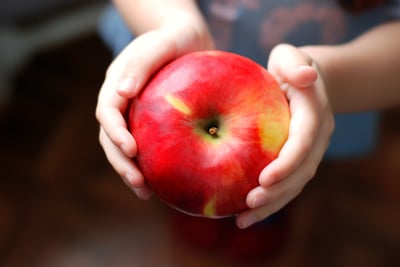We learned a bit about diminutives earlier, so now it’s time to look at their opposites: augmentatives. Augmentatives in Portuguese are usually used to add emphasis when describing a person or object as strong, large, or ugly. Sometimes they can be quite pejorative (and funny)!
In the Diminutives’ Learning Note we mentioned that the augmentative is one of the three degrees a noun can have and that, technically, adjectives don’t have it. Despite that, they’re used anyway, in informal contexts. Adjectives in the augmentative are rarer, mostly because they don’t sound good. The superlative degree is preferred instead, which uses the suffix –íssimo (among others). You can also make use of the adverbs tãoso and muitomuch, a lot, very to express a similar idea.
Augmentatives in English
First, let’s look at some augmentative forms in the English language, just to give you an initial idea of what we mean when we refer to augmentatives.
Some are created by adding the prefixes: mega-, ultra-, super-, over- and grand-.
For example:
- mega: megastore, megahits
- ultra: ultra-bright
- super: superman, supersize
- over: overdrive, overqualified, overconfident
- grand: grandparents
Most of these are emphasizing the greatness, superiority, or larger size of the object / thing.
Augmentatives in Portuguese
Portuguese augmentatives follow more consistent rules. We’ll cover the general guidelines below, but just be aware that there are exceptions.
-ão / -ona
 In Portuguese, the most common augmentative suffixes are formed by adding –ão (for masculine words) and –ona (for feminine words).
In Portuguese, the most common augmentative suffixes are formed by adding –ão (for masculine words) and –ona (for feminine words).
They often indicate a larger size.
Here are some examples:
- Passa-me a garrafaPass me the bottle → Passa-me o garrafãoPass me the jug
- o carrothe car → o carrãothe big car or the luxurious, expensive car
- uma casaa house → um casarãoa mansion – Notice here that we also add an r to get casarão, not casão.
It may seem strange, but sometimes a masculine suffix is added to a feminine noun, as it was with garrafa and casa above.
Here’s another example:
uma mulhera woman → um mulherãoa big or attractive woman
The word mulherão is grammatically masculine, but still has a feminine meaning.
-zão / -zona
 In some special cases, we add the suffixes –zão (masculine) and –zona (feminine) instead.
In some special cases, we add the suffixes –zão (masculine) and –zona (feminine) instead.
Words that end in stressed syllables:
Words that end in nasal sounds:
- o homemthe man → o homenzãothe big or attractive man
- Olha só para esta maçã!Just look at this apple! → Olhá só para esta maçãzona!Just look at this big apple!
Words that end in a diphthong (two vowels together):
Words that end in –e and some that end in –or/-ora and –o/–a
- a alfacethe lettuce → a alfacezonathe big lettuce
- o cantorthe singer (male) → o cantorzãothe great singer
- a camisathe shirt → o camisãothe big shirt
Words that end in -z
In some words that end in –z, you have to replace the letter z with g before adding the augmentative ending. For example:
The word rapazboy is correct either way:
However, the word arrozrice in the augmentative gets the usual -ão ending and becomes just:
When to Use Augmentatives in Portuguese
 In which contexts do we use augmentatives in Portuguese?
In which contexts do we use augmentatives in Portuguese?
To say that something is big or great
- Tive um trabalhão a montar istoI had a lot of work putting this together, i.e. I had a hard time...
- Ela é valenteShe's fearless → Ela é valentonaShe's so fearless, She's very brave
To show that we care about something or someone
To emphasize a word or idea
- O marido da Joana é um bonitãoJoana's husband is very handsome
- O Benfica contra o Porto foi um jogãoBenfica vs. Porto was a great match
Alternative Portuguese Augmentatives
Just like in the diminutive, some words also make use of alternative suffixes in the augmentative, other than the ones we presented above.
- festaparty → festãobig party or festançabig party
- cãodog → cãozarrãobig dog or canzarrãobig dog – never ‘cãozão‘!
- facaknife → facalhãobig knife – never ‘facona’!
- amigofriend (male) → amigãogreat friend (male) , amigalhaçogreat friend (male) or amigaçogreat friend (male)
- barulhonoise → barulhãoloud noise or barulheiraloud noise
- cabeçahead → cabeçãobig head or cabeçorrabig head
- chuvarain → chuvadapouring rain
- copoglass → copáziobig glass
- bocamouth → bocarrabig mouth – never ‘bocona‘!
- girocute, attractive (male) → giraçogorgeous, very attractive (male) or giraçagorgeous, very attractive (female)
As you can probably tell, the augmentative is a bit trickier than the diminutive. If you’re unsure, you can always use an adverb or an adjective to qualify the noun instead. Still, it’s good to be familiar with these since you will hear them often in conversation. 🙂



Mmm might stick to the diminutives for now!
Chefão or chefezão. As it ends in an e?
Good question! We do prefer ‘chefão’ in European Portuguese, which is an exception to that general rule.